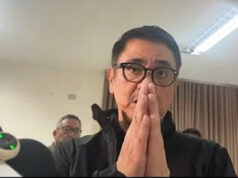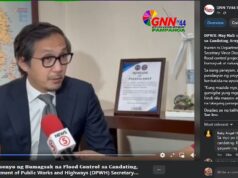LAST WEEK on April 3, a number of local government units all over the country suspended face-to-face classes due to the hot weather. In Pampanga alone, the cities of Angeles, Mabalacat, and San Fernando; the towns of Floridablanca, Sta. Ana, Bacolor, Mexico, Macabebe, Masantol, San Simon, Candaba, and Sto. Tomas advised all public and private schools to implement online classes, modular activities or other alternative learning methods to ensure the continued delivery and transfer of learning to the learners.
And then on April 5, Gov. Dennis Pineda issued Executive Order No 04-2024 that suspended face-to-face classes in all levels of public and private schools in Pampanga. The move was aimed at preventing heat-related incidents especially among students.
While I truly appreciate the concern of the provincial government and the LGUs to prioritize the health and well-being of learners and school employees, I also believe that the school heads must be given the discretion to decide, given the context of their own schools and their learners. This is especially true for most private schools that have relatively smaller class sizes, well-ventilated or air-conditioned classrooms and supportive parents who continue to clamour for shortened in-person classes. These are the same parents who know first-hand the limitations of online classes or other alternative learning modalities that they and their children experienced during the pandemic.
Admittedly, I was among the first to raise concerns on the announcement, asking our municipal disaster reduction and risk management officer if the suspension of in-person classes by the LGU would be automatic once the heat index in the province reaches 40°C. Considering how we continue to experience the effects of global warming, this will be the case until May as far as the heat index is concerned. Ergo, no face-to-face classes until the end of the school year?
The delivery of online classes remains a challenge in the country most particularly in remote towns and barangays not because they are ineffective, but because the availability of a steady internet connection and gadgets continue to limit the genuine transfer of learning. These are inherent limitations and serious threats that have not been addressed properly even after the pandemic.
It is truly a tough balancing act for school leaders and even our government leaders. At a time when the school calendar was disrupted by natural calamities, national and local holidays and when the dismal scores and ranking in the PISA and other international assessments continue to place the country at the tail end, how do put a premium on the need to address the learning gaps and losses without sacrificing the health and well-being of the learners?
I think the beauty of following and implementing an order first, whether from the provincial government or the LGU, and then raising valid questions after compliance is that both parties can have a proactive approach to the situation and the arrive at a win-win solution.
At the school level, the best solution is achieved when other stakeholders are involved as well. So, with inputs coming from students and parents, schools have now implemented shortened class schedules, cancelled start-of-day assemblies at the open quadrangle, allowed the wearing of jeans and white shirt or PE uniforms the rest of the week instead of the complete type A uniform, and reminded students to hydrate themselves regularly and to remain indoors during critical hours of the day when the temperature is at its highest.
Within the next two school years starting next year, the school calendar will gradually revert to the June opening because the heat index from March to May is just unbearable for all school stakeholders. This is also a welcome move from the Department of Education.
We are lucky that Gov. Delta Pineda and most LGU heads continue to show their paramount concern for all learners; but we are even luckier that they continue listen and involve us in the decisions that directly affect us.





